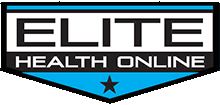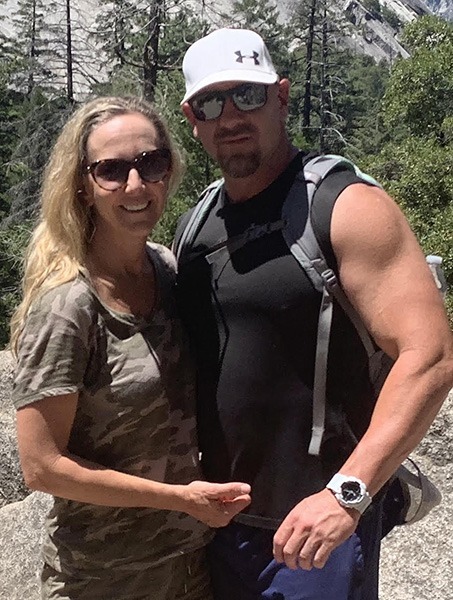The heat got ya down?
Are you yawning more than you should be?
Don’t just grab another Starbucks!
Did you know it could be as simple as missing a few key vitamins and minerals?
Today, let’s polish up on the essentials and why they are useful…
VITAMINS AND MINERALS
Different types of vitamins and minerals enable healthy body function, such as cell and tissue repair, production of cells, and healthy brain function. Your body doesn’t produce these vitamins and minerals on its own, and while you can get most of these from a supplement, your body reacts better when these vitamins and minerals come from food. According to Health.gov, Americans do not consume sufficient amounts of potassium, dietary fiber, choline, magnesium, calcium, and vitamins A, D, E, and C. Iron is also under-consumed by adolescent girls and women ages 19 to 50 years of age. The charts below list the important vitamins and minerals required for your overall well-being and describe their functions, their sources, what can happen when you don’t get enough.
Water-soluble vitamins |
||
| Nutrient | Function | Sources |
Thiamine (vitamin B1) |
Part of an enzyme needed for energy metabolism; important to nerve function |
Found in all nutritious foods in moderate amounts: pork, whole grain foods or enriched breads and cereals, legumes, nuts and seeds |
Riboflavin (vitamin B2) |
Part of an enzyme needed for energy metabolism; important for normal vision and skin health |
Milk and milk products; leafy green vegetables; whole grain foods, enriched breads and cereals |
Niacin (vitamin B3) |
Part of an enzyme needed for energy metabolism; important for nervous system, digestive system, and skin health |
Meat, poultry, fish, whole grain foods, enriched breads and cereals, vegetables (especially mushrooms, asparagus, and leafy green vegetables), peanut butter |
Pantothenic acid |
Part of an enzyme needed for energy metabolism |
Widespread in foods |
Biotin |
Part of an enzyme needed for energy metabolism |
Widespread in foods; also produced in intestinal tract by bacteria |
Pyridoxine (vitamin B6) |
Part of an enzyme needed for protein metabolism; helps make red blood cells |
Meat, fish, poultry, vegetables, fruits |
|
Part of an enzyme needed for making DNA and new cells, especially red blood cells |
Leafy green vegetables and legumes, seeds, orange juice, and liver; now added to most refined grains |
|
Cobalamin (vitamin B12) |
Part of an enzyme needed for making new cells; important to nerve function |
Meat, poultry, fish, seafood, eggs, milk and milk products; not found in plant foods |
Ascorbic acid (vitamin C) |
Antioxidant; part of an enzyme needed for protein metabolism; important for immune system health; aids in iron absorption |
Found only in fruits and vegetables, especially citrus fruits, vegetables in the cabbage family, cantaloupe, strawberries, peppers, tomatoes, potatoes, lettuce, papayas, mangoes, kiwifruit |
Fat-soluble vitamins
Fat-soluble vitamins are stored in the body’s cells and are not excreted as easily as water-soluble vitamins. They do not need to be consumed as often as water-soluble vitamins, although adequate amounts are needed. If you take too much of a fat-soluble vitamin, it could become toxic.
A balanced diet usually provides enough fat-soluble vitamins. You may find it more difficult to get enough vitamin D from food alone and may consider taking a vitamin D supplement or a multivitamin with vitamin D in it.
Fat-soluble vitamins |
||
| Nutrient | Function | Sources |
|
Vitamin A (and its precursor*, beta-carotene) *A precursor is converted by the body to the vitamin. |
Needed for vision, healthy skin and mucous membranes, bone and tooth growth, immune system health |
Vitamin A from animal sources (retinol): fortified milk, cheese, cream, butter, fortified margarine, eggs, liver Beta-carotene (from plant sources): Leafy, dark green vegetables; dark orange fruits (apricots, cantaloupe) and vegetables (carrots, winter squash, sweet potatoes, pumpkin) |
Vitamin D |
Needed for proper absorption of calcium; stored in bones |
Egg yolks, liver, fatty fish, fortified milk, fortified margarine. When exposed to sunlight, the skin can make vitamin D. |
Vitamin E |
Antioxidant; protects cell walls |
Polyunsaturated plant oils (soybean, corn, cottonseed, safflower); leafy green vegetables; wheat germ; whole-grain products; liver; egg yolks; nuts and seeds |
Vitamin K |
Needed for proper blood clotting |
Leafy green vegetables such as kale, collard greens, and spinach; green vegetables such as broccoli, Brussels sprouts, and asparagus; also produced in intestinal tract by bacteria |
The 5 Best Vitamins for Energy & Tiredness
by Rachel Bartholomew BA (Hons), Dip ION, mBANT, CNHC, GHW
Despite the best marketing efforts of a huge drinks company, energy is not something you can buy in a can. Energy is actually something that your body makes. You supply the raw ingredients (aka food) and your body quickly gets to work on the complicated process of making energy. Since your body needs energy for lots of everyday functions, not just to move, but to digest food, even to think and much more, it’s crucial that this process is well supported and that’s where a bit of know-how comes in handy. Your body needs extra help from key nutrients to turn food into energy, and without these, the whole process simply does not work.
1) Vitamin B1 (Thiamin)
Most of your body’s cells prefer to use carbohydrates as a main energy fuel, however you need a steady supply of vitamin B1 to actually turn these foods into energy. An athlete eating a high carbohydrate diet will need higher amounts of vitamin B1 in their diet to access this energy.
Best food sources – Sunflower seeds, navy beans, black beans, barley, pinto beans, lentils and oats.
2) Vitamin B2 (Riboflavin)
Most of your body’s cells prefer to access energy from carbohydrates but they can use fats and protein too. Vitamin B2 helps the body to convert not just carbohydrates but fats and protein into energy too. This vitamin is particularly important for energy production in the heart and muscles.
Best food sources – Soybeans, spinach, beet greens, tempeh, natural yoghurt, eggs, asparagus, almonds, turkey and beef liver.
3) Vitamin B3 (Niacin)
This vitamin is needed as a co-factor in over 200 enzyme reactions in your body and is another vitamin that’s essential for turning carbohydrates, fats and protein into energy. It is also used to build fat structures in your body such as cell membranes and hormones. If your diet is low in B3 you could be feeling tired due to your body not being able to convert food into energy properly and due to low hormone production such as thyroid hormone.
Best food sources – Tuna, chicken, turkey, salmon, lamb, beef, sardines, peanuts, shrimp, brown rice.
4) Vitamin B5 (Pantothenic acid)
Essential for the breakdown of carbohydrates, protein and fats into energy. Like vitamin B3, vitamin B5 is also involved in the production of fat structures such as hormones. Vitamin B5 is particularly important if your energy levels have dropped due to intense stress. This is because this vitamin is involved in the production of energy and stress-busting hormones.
Best food sources – Shiitake mushrooms, avocado, sweet potato, crimini mushrooms, lentils, dried peas, chicken, turkey, natural yoghurt, broccoli
5) Vitamin B6 (Pyridoxine)
This vitamin is needed for the development of the building blocks of protein and DNA. It is a crucial vitamin needed for normal energy yielding metabolism, as it is involved in the breakdown of glycogen stores (found in the muscle and liver) into energy. Athletes or anyone exercising regularly will need to make sure they get plenty of vitamin B6 in their diet in order to be able to access stored energy when they need it.
Best food sources – Spinach, banana, sunflower seeds, potato, sweet potato, salmon, chicken, beef, turkey, tuna.
DID YOU KNOW…
Elite’s in-depth lab workup can tell you any and all of these essentials you might be missing. They can EVEN provide you with exactly what YOU specifically need to improve your numbers. Getting your yearly check-up is GREAT, but unfortunately those don’t necessarily give you the answers for daily SLUGGISHNESS.
Symptoms of Vitamin Deficiency:
- Fatigue
- Shortness of breath
- Dizziness
- Pale or yellowish skin
- Irregular heartbeats
- Weight loss
- Numbness or tingling in your hands and feet
- Muscle weakness
- Personality changes
- Unsteady movements
- Mental confusion or forgetfulness
Vitamin deficiency usually develops slowly over several months to years.
Causes
Vitamin deficiency anemia develops when your body has a shortage of the vitamins needed to produce enough healthy red blood cells. Red blood cells carry oxygen from your lungs throughout your body.
If your diet is lacking in certain vitamins, vitamin deficiency anemia can develop.
Causes of vitamin deficiency anemias include:
Folate deficiency anemia
Folate, also known as vitamin B-9, is a nutrient found mainly in fruits and leafy green vegetables. A diet consistently lacking in these foods can lead to a deficiency.
Most nutrients from food are absorbed in your small intestine. You might have difficulty absorbing folate or folic acid, the synthetic form of folate that’s added to foods and supplements, if:
- Celiac
- You’ve had a large part of the small intestine surgically removed or bypassed
- Drink Alcohol
- You take certain prescription drugs, such as some anti-seizure medications
Vitamin C deficiency
Vitamin C deficiency can develop if you don’t get enough vitamin C from the foods you eat.
Risk factors
A number of factors can affect your body’s vitamin stores. In general, your risk of vitamin deficiency is increased if:
-
Your diet contains little to no natural vitamin food sources,
Vegetarians who don’t eat dairy products and vegans, who don’t eat any foods from animals, may fall into this category.
-
You’re pregnant,
and you aren’t taking a multivitamin.
- You have intestinal problems or other medical conditions
- that interfere with absorption of vitamins. Abnormal bacterial growth in your stomach or surgery to your intestines or stomach can interfere with the absorption of vitamin B-12.
-
You abuse alcohol.
-
You take certain prescription medications
that can block absorption of vitamins. Anti-seizure drugs can block the absorption of folate. Antacids and some drugs used to treat type 2 diabetes may interfere with B-12 absorption.
Complications
Being deficient in vitamins increases your risk of many health problems, including:
Nervous system disorders
Without treatment for vitamin B-12 deficiency, neurological complications can become permanent. Vitamin B-12 deficiency can cause these and other health problems before it leads to anemia.
Prevention
Choose a healthy diet
You can prevent some forms of vitamin deficiency anemias by choosing a healthy diet that includes a variety of foods.
Foods rich in folate include:
- Dark green leafy vegetables
- Nuts
- Fruits and fruit juices
Foods rich in vitamin B-12 include:
- Eggs
- Milk, cheese and yogurt
- Meat and shellfish
Foods rich in vitamin C include:
- Broccoli
- Citrus fruits and juices
- Strawberries
- Green peppers
- Tomatoes
- Vitamin B-12 —4 micrograms (mcg)
- Folate or folic acid —400 mcg
- Vitamin C —75 to 90 milligrams
Don’t smoke
Tip of The Day:
Drink alcohol in moderation, if at all
Alcohol can contribute to vitamin deficiency anemia.
- Two drinks a day for men age 65 and younger
- One drink a day for men older than age 65
- One drink a day for women of any age
A drink is 12 ounces (355 milliliters) of beer, 5 ounces (148 milliliters) of wine or 1.5 ounces (44 milliliters) of 80-proof distilled spirits.
Cheers to not so many CHEERS!!! LOL!

